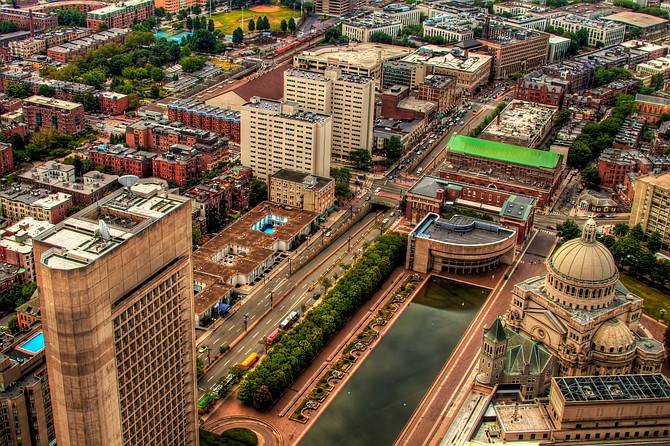Civil rights and indigent defense groups asked Massachusetts' highest court Thursday to stop federal agents from arresting immigrants targeted for deportation at courthouses, saying the practice is scaring victims, witnesses and others away from halls of justice. Photo courtesy Flickr/Navaneeth KN
BOSTON (AP) — Civil rights and indigent defense groups asked Massachusetts' highest court Thursday to stop federal agents from arresting immigrants targeted for deportation at courthouses, saying the practice is scaring victims, witnesses and others away from halls of justice.
The petition filed in the Supreme Judicial Court cites immigrants — including a woman who wants to renew a restraining order against her abusive ex-husband — who are too afraid to enter state and local courthouses out of fear of deportation.
The challenge, believed to be the first of its kind in the country, comes as advocates, attorneys and judges have complained about courtroom arrests under President Donald Trump. Courtroom arrests happened under President Barack Obama's administration but attorneys have said the pace appears to have picked up under Trump.
"When people fear our judicial system, that undermines the very fabric of our society and weakens communities," said Ivan Espinoza-Madrigal, executive director of the Lawyers' Committee for Civil Rights and Economic Justice, one of the groups that filed the petition on the immigrants' behalf.
Despite pressure from advocates to declare courthouses "sensitive locations" generally free from immigration enforcement, federal officials in January formalized a policy to send agents to federal, state and local courthouses to make arrests.
Sensitive locations where enforcement is generally avoided include schools, hospitals and places of worship.
ICE says it is targeting convicted criminals, gang members and public safety threats at courthouses as well as immigrants who have been previously deported or ordered to leave. Officials say family, friends and witnesses in court won't be arrested— absent "special circumstances." ICE says it will "generally avoid" immigration enforcement in non-criminal courthouses, like family court.
Trump administration officials have also said that courthouses are a safer place for agents to make arrests since visitors typically have to go through metal detectors.
ICE Spokesman John Mohan said Thursday that the agency does not comment on pending litigation as a matter of policy.
But Mohan said ICE's enforcement action in courthouses is "wholly consistent with longstanding law enforcement practices nationwide." He said jurisdictions' unwillingness to transfer immigrants in local prisons and jails to ICE custody often necessitates courthouse arrests.
Last month, more than 100 New York City public defenders walked out in protest of their clients getting detained by immigration officials, with one lawyer saying ICE agents are "trolling" the courthouse.
And the chief justice of the California Supreme Court last year complained in a letter to top federal officials that ICE agents were "stalking" courthouses to make arrests.
The petition asks the Massachusetts Supreme Judicial Court to issue a "writ of protection" that would block ICE from arresting people in courthouses for civil immigration violations. The attorneys point to a common law doctrine that protects people who have business before a court from arrest on civil matters.
"It is based on a simple longstanding principle: If people fear arrest on unrelated civil matters, they will be hesitant to go to court, and that will severely undermine the functioning of our judicial system," Wendy Wayne of the Committee for Public Counsel Services, Massachusetts' public defender agency, said in a statement.
Espinoza-Madrigal said the challenge to the courthouse arrests is the first of its kind and will likely spur similar legal actions in other states.
Pratheepan Gulasekaram, an immigration law expert at Santa Clara University, said critics could also argue that the federal government is obstructing justice by scaring witnesses and others away from court.
"It's not clear how these legal theories will play out because many of them present novel issues that courts have yet to wrestle with," he said.
The immigrants cited in the petition include a man from Honduras who was violently attacked and is afraid to appear in court as a witness because he believes his attacker may tell ICE he's living in the U.S. illegally. Another woman from Guatemala wants to go to court to try to force her son's father to pay child support.
A woman from Brazil cited in the suit wants to renew a restraining order against her ex-husband who she said threatened to kill her, but said she is terrified about what would happen to her son if she is deported.
The immigrants are not named in the petition.
Copyright Associated Press. All rights reserved. This material may not be published, broadcast, rewritten, or redistributed.



Comments
Use the comment form below to begin a discussion about this content.